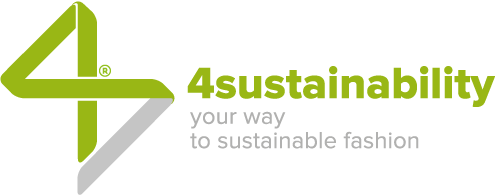The Sustainability Report is the result of a process that companies carry out to highlight their economic, social and environmental performance to stakeholders. This definition and the broader ones by the European Court of Auditors or the Global Reporting Initiative, among others, emphasize precisely the term process, because the mistake of assimilating reporting activities with their final product is still widespread.
The context and regulatory pressures
Since the eighties of the last century, more or less, the role of companies has been redefined due to their impact on the environment and the community. Companies feel the need to integrate into strategy the requests that the community expresses towards them, taking into consideration aspects not only linked to profit and making a coherent report, including qualitative and quantitative information on the effects of their actions and their own ability to generate value.
On a regulatory and financial level, ESG – Environmental Social and Governance measurements acquire an ever greater weight in the Corporate Social Responsibility – CSR concept, meaning the set of responsibilities coming from extended duties of a fiduciary nature that companies have towards stakeholders. A key new element lies in the search for collaboration aimed at fair distribution of the value created and the containment of negative effects on stakeholders.
As regards the so called external pressures, we cannot but mention the most important of all: the 2030 Agenda for Sustainable Development, with its 17 objectives (Sustainable Development Goals – SDGs) integrated into a great action program for a total of 169 targets and also included in the Global Compact, the largest international corporate sustainability initiative.
Sustainability report …
Legislators, citizens and the market ask companies to do business with a more ethical and attentive approach to people’s rights, social balance and the environment. Above all, they ask to be informed about the related performances through punctual, periodic and transparent communication, which companies interpret by publishing a sustainability report.
Meant as a product of the reporting process, the report is the document which companies adopt to “tell” their environmental, social and economic sustainability performance according to globally recognized standards designed to facilitate the global comparability of information.
The sustainability report is the tool through which each company communicates its initiatives to protect the environment, its policies towards workers, its relations with the territory and the community … offering a precise, complete and transparent picture of the interdependence among economic, social and environmental factors.
The report also explains how to manage the most relevant sustainability aspects for the company and its stakeholders in terms of values, principles, policies and governance systems, providing for a prospective framework for future commitments and goals.
… and reporting process
In order for the report to provide a picture of such complexity, the process for its preparation must be punctual and accurate, divided into phases that we can summarize as follows.
The commitment to sustainability
The reporting process is effective if the whole company is engaged in its implementation. The starting point is the commitment by the top management, who carry out a sustainability implementation and reporting project and share its principles at all levels of the organization, responding to the challenge of Sustainable Development Goals (SDGs).
Materiality analysis: relevant issues individuation
The second step consists in defining the most relevant sustainability issues for the company and its stakeholders, those issues that will be reflected in specific projects and then analyzed in the reporting phases.
The materiality analysis, which is provided for by the main sustainability standards, allows to define a priority scale to refer so as to orient the transformation journey towards more sustainable business models.
KPI identification
Once the material issues have been determined, you should identify the KPIs, i.e. the key indicators for measuring the company’s economic, social and environmental performance. The most widespread sustainability reporting standards include the GRI standard as the main international reference for companies, which use its indicators to collect information within the organization.
Data collection
The step that follows the KPIs’ definition is the data collection from the different functions of the organization, their verification and internal validation according to a process to be built with the responsible functions.
Data collection and performance measurement are closely related to the implementation projects that the company carries out in its sustainability strategy: if projects are not done, there is nothing to measure and report, in fact.
Goal setting and improvement plan
The data collected and the measurement of the performance achieved are analyzed so that the company can reasonably decide where to intervene, defining the goals of its improvement plan and therefore the reference terms on which progress will be measured in later years.
The help from technology
Sustainability reporting must itself be sustainable, which implies the company’s ability to build a solid and replicable data implementation, collection and analysis process over time and to carry it out in the most smart way possible. The method and technology are of great help in this sense.
If carried out with this approach, the sustainability report becomes a powerful tool for institutional measurement and communication towards stakeholders. It’s the main document to report the sustainable development actions implemented over time, it is a reliable guarantee of the truthfulness of the company’s commitment to integrate ethics and business and build transparent and greenwashing-proof measurement systems.
“The biggest but decisive challenge – says Francesca Rulli, Process Factory CEO and Founder – is to simplify complexity by linking reporting to the real implementation of projects. It’s not a question of writing a good book, but of making the measurement of the positive impacts the organization is able to generate transparent. Hence the idea of a software for sustainability reporting designed to innovate in terms of concept and technology a process still today conducted mostly manually, especially by small and medium-sized companies.
To proceed, we needed a valid technological partner and we found this partner in FabricaLab, which had already designed a workflow to support data collection with authorization processes aimed at generating structured reporting. The PC4S platform is the result of a synergy between IT and process skills, a simple but very powerful innovative solution to help companies in the data collection and management process up to the issuance of an advanced sustainability report from all points of view”.

